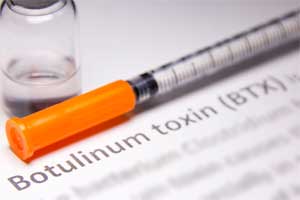- Home
- Editorial
- News
- Practice Guidelines
- Anesthesiology Guidelines
- Cancer Guidelines
- Cardiac Sciences Guidelines
- Critical Care Guidelines
- Dentistry Guidelines
- Dermatology Guidelines
- Diabetes and Endo Guidelines
- Diagnostics Guidelines
- ENT Guidelines
- Featured Practice Guidelines
- Gastroenterology Guidelines
- Geriatrics Guidelines
- Medicine Guidelines
- Nephrology Guidelines
- Neurosciences Guidelines
- Obs and Gynae Guidelines
- Ophthalmology Guidelines
- Orthopaedics Guidelines
- Paediatrics Guidelines
- Psychiatry Guidelines
- Pulmonology Guidelines
- Radiology Guidelines
- Surgery Guidelines
- Urology Guidelines
Botox lowers risk of postop AF in cardiac surgery patients

Botulinum toxin (BTX) injection which is commonly used for cosmetic purposes might also be used for the suppression of postoperative atrial fibrillation (POAF) -- a common complication affecting one quarter to one-half of all patients following cardiac surgery, according to a new study.
HeartRhythm, the official journal of the Heart Rhythm Society and the Cardiac Electrophysiology Society, reports promising results from two clinical trials using botulinum toxin (BTX) injections to suppress POAF.
POAF, when not suppressed can lead to stroke, heart failure, and longer hospital stays, resulting in an increased cost of care.
BTX is a potent inhibitor of neural transmission and is best known for the temporary reduction of facial wrinkles. It is also used for the treatment of some neurological disorders including eye muscle disorders and excessive sweating.
Also Read: Modern cosmetic surgical procedures on the rise : ASAPS
Jonathan S. Steinberg, University of Rochester School of Medicine & Dentistry, Rochester, New York, and colleagues conducted this randomized placebo-controlled longitudinal study to report 3-year AF patterns by the use of implantable cardiac monitors (ICMs).
For the purpose, sixty patients with a history of paroxysmal atrial fibrillation were randomized to receive BTX or placebo injections into 4 posterior epicardial fat pads in the ratio 1:1. All patients received an ICM with regular follow-up for 3 years after surgery.
The primary endpoint was an incidence of any atrial tachyarrhythmia after 30 days of the procedure until 36 months on no antiarrhythmic drugs. The secondary endpoints included clinical events and AF burden.
"This study tested the hypothesis that interruption of cardiac neural traffic by BTX could undermine the pathologic processes that promote AF after cardiac surgery. In two previous publications, the study group has shown significant reductions in early postoperative AF up to 30 days, but also sustained the reduction of AF out to one year," explains Dr Steinberg.
Also Read: Botox a safe treatment option for Juvenile Plantar Hyperhidrosis
Key Findings:
- At the end of 36 months, the incidence of any atrial tachyarrhythmia was 23.3% in the BTX group vs 50% in the placebo group.
- AF burden at 12, 24, and 36 months was significantly lower in the BTX group than in the placebo group: 0.22% vs 1.88%, 1.6% vs 9.5%, and 1.3% vs 6.9%, respectively.
- In the BTX group, 2 patients (7%) were hospitalized during follow-up compared with 10 (33%) in the placebo group.
"The results of our studies suggest a new approach to the treatment of AF. The sustained reduction of AF, now demonstrated over three years, was notable and a bit of a surprise. We believe that autonomic remodelling was interrupted and the predisposition to AF was reset as a result of BTX injection," said Dr Steinberg.
The BTX concept could also be tested in non-postoperative patients in future studies, extending the treatment paradigm of neuromodulation as a stand-alone or supplemental antiarrhythmic strategy, which may potentially be applicable to the many other clinical contexts in which AF appears.
This is potentially an important and impactful breakthrough if confirmed in larger trials, according to Dr. Steinberg. Reduction of postoperative AFcan lead to a significant reduction in the utilization of health care resources.
In the second trial, Nathan H. Waldron, the Department of Anesthesiology, and colleagues at Duke University, Durham, NC, USA, randomized 130 patients to receive an injection of either 250 units of botulinum toxin type A (BoNTA) or saline in epicardial fat pads containing autonomic ganglia after the start of cardiopulmonary bypass, but before the surgical procedure.
They assessed the occurrence of POAF with continuous telemetry during postoperative hospitalization. There was no increase in complications after cardiac surgery, but the procedure did not result in a statistically significant reduction in the risk of POAF. The investigators consider this may be due to inadequate power to detect a modest, but clinically meaningful, the impact of BoNTA.
"While we did not observe a statistically significant reduction in the occurrence of POAF, patients receiving epicardial botulinum toxin had shorter initial episodes of POAF and a trend toward less hemodynamically significant POAF," notes Dr Waldron.
"The patients treated with toxin had an 11 per cent lower risk of postoperative AF that did not meet statistical significance, so a larger, adequately powered trial is something that is needed to provide a clearer picture," adds senior author Jonathan P. Piccini, MD, a member of the Duke Clinical Research Institute (DCRI), Durham, North Carolina, USA.
"Injection of BTX into epicardial fat pads in patients undergoing CABG resulted in a sustained and substantial reduction in atrial tachyarrhythmia incidence and burden during the 3-year follow-up, accompanied by a reduction in hospitalizations," concluded Dr. Steinberg and colleagues.
For further reference log on to https://doi.org/10.1016/j.hrthm.2018.08.019

Disclaimer: This site is primarily intended for healthcare professionals. Any content/information on this website does not replace the advice of medical and/or health professionals and should not be construed as medical/diagnostic advice/endorsement or prescription. Use of this site is subject to our terms of use, privacy policy, advertisement policy. © 2020 Minerva Medical Treatment Pvt Ltd